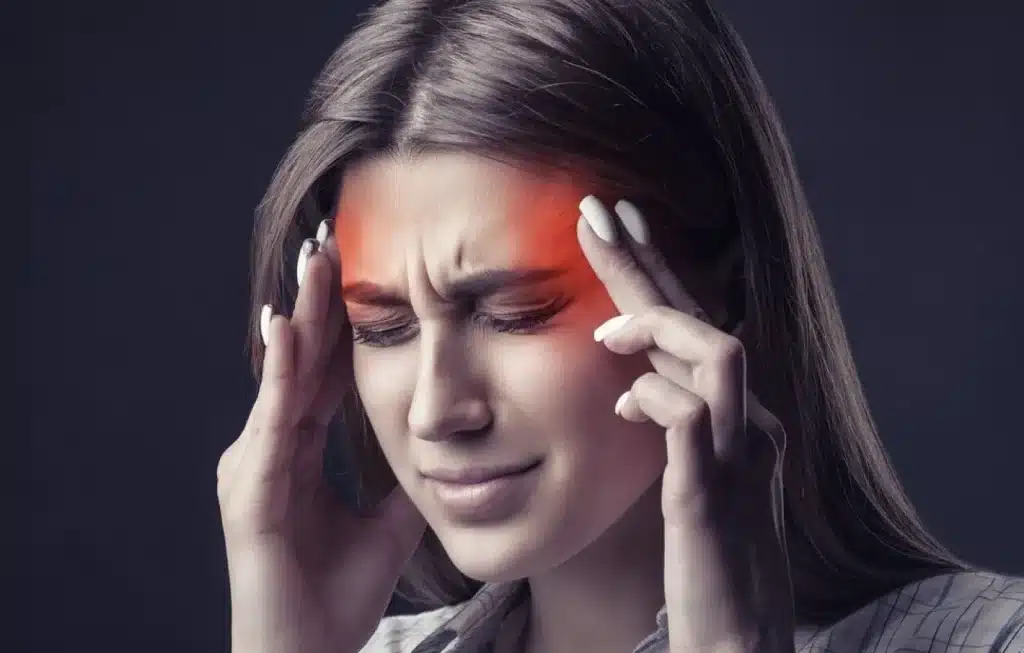When Anxiety Feels Like Another Battle,
We Help You Find a Way Out
Is your heart racing even when there’s no threat? Does your mind replay worst-case scenarios on an endless loop? Are you sidestepping situations that once felt routine? And are you just plain tired of constantly being “on edge”? If any of this resonates with you, know that you’re far from alone. More importantly, you don’t have to keep living this way.
Anxiety isn't a "one size fits all" experience.

It can manifest in many different ways, and understanding how it shows up for you is the first step toward finding relief. Here are some common ways anxiety can appear:
Generalized Anxiety Disorder (GAD):
Do you constantly play out “what if” scenarios in your head? Does your mind race, worrying about everything from big presentations to whether you remembered to lock the front door? It’s like your brain can’t hit the “off” switch, even when you logically know your worries are probably overblown.
Panic Disorder:
These are those terrifying moments where your heart pounds out of your chest, you struggle to breathe, and you feel an overwhelming sense of dread, like you might lose control or even die. Panic attacks are incredibly frightening, but here’s the crucial part: they are absolutely treatable.
Social Anxiety:
Do you dread social gatherings, work meetings, or any situation where you might feel scrutinized? It’s that nagging feeling that everyone is watching and judging you, even when, in reality, they’re probably not.
Specific Phobias:
This is an intense, overwhelming fear of a particular situation or object – like flying, heights, needles, or blood. While these fears might seem irrational to others, they feel intensely real and terrifying when you’re caught in their grip.
Health Anxiety:
Are you perpetually worried about your health, often interpreting normal body sensations as red flags for serious illness? Or perhaps you even avoid medical care altogether due to the sheer anxiety of what might be discovered.
Work/Performance Anxiety:
This type of anxiety specifically flares up around work, school, or performance situations. It could be test anxiety, the jitters before a big presentation, or just a constant, gnawing stress related to your professional or academic life.
Different Faces of Anxiety, Different Ways to Heal

Medication Management
For some, medication can offer significant relief, especially when anxiety feels overwhelming or is severely disrupting daily life. We take a very thoughtful approach, carefully choosing medications based on your unique symptoms, lifestyle, and what you hope to achieve:
- SSRIs/SNRIs: These are often the first line of defense for anxiety. They can really help reduce overall anxiety levels, usually with minimal side effects, helping to quiet that constant worry.
- Benzodiazepines: When anxiety hits hard and fast, these can offer quick relief. We use them carefully and strategically to manage acute moments, always mindful to prevent dependence.
- Beta-blockers: If your anxiety shows up as a racing heart or shaky hands, especially in performance situations, beta-blockers can be incredibly helpful for calming those physical symptoms.
- Other Options: Sometimes, standard approaches aren’t quite the right fit. In those cases, we explore other effective medications like buspirone or gabapentin to find what works best for you.
Cognitive Behavioral Therapy (CBT)
CBT is one of the most powerful tools we have for anxiety. It’s all about helping you understand and gently challenge those anxious thought patterns. We’ll work together to identify those unrealistic fears and build more balanced, helpful ways of thinking about situations that normally trigger your anxiety. It’s about changing your relationship with your thoughts.
Exposure Therapy
If you’re dealing with specific phobias or find yourself avoiding certain situations, exposure therapy can be incredibly effective. The idea is to gradually and gently expose you to the things you fear. We start incredibly small, taking tiny steps, and always at a pace that feels comfortable and empowering for you. It’s about building your confidence, little by little.
Mindfulness & Relaxation Techniques
Learning how to actively calm your nervous system is a vital skill. We’ll teach you practical, real-world techniques you can use anytime, anywhere. This includes things like deep breathing exercises, progressive muscle relaxation to release tension, and mindfulness practices to bring you back to the present moment.
Lifestyle Modifications
Did you know that things like your sleep habits, how much you exercise, your caffeine intake, and how you manage stress can all significantly impact your anxiety? We’ll help you pinpoint which lifestyle factors might be contributing to your anxiety and work with you to create realistic, sustainable changes that support your overall well-being.
How We Guide You Through Anxiety Relief

Initial Assessment
We’ll thoroughly evaluate your anxiety symptoms, triggers, impact on daily life, and previous treatment experiences. This helps us understand your specific type of anxiety and develop an effective treatment plan.
Treatment Planning
Based on your assessment, we’ll recommend a combination of treatments that make sense for your situation. This might include medication, therapy, or both.
Building Coping Skills
Before tackling your biggest fears, we help you build a toolkit of coping strategies. These become your go-to techniques when anxiety starts to spike.
Gradual Progress
Whether we’re using exposure therapy, adjusting medications, or practicing new skills, we make changes gradually. This helps you build confidence without overwhelming your system.
Real-World Practice
The goal isn’t just to feel better in our office—it’s to function better in your actual life. We focus on applying your skills to real situations you encounter.
Maintenance and Prevention
Once your anxiety is manageable, we work on maintaining your progress and preventing relapse. This might mean ongoing medication, periodic therapy check-ins, or both.
Answers to the Questions You’re Already Thinking About

How long does it take to feel better after starting treatment?
Improvement varies, but many patients notice changes within a few weeks of starting medication or therapy. We tailor your plan to speed progress while keeping your well-being front and center.
Will I have to take medication forever?
Not necessarily. Some people use medication short-term while learning coping skills, while others benefit from longer-term treatment. We regularly review your needs and adjust accordingly.
What if therapy feels uncomfortable or overwhelming?
It’s normal to feel uneasy at first. Our therapists work at your pace, creating a safe space where you can build trust and gradually face anxiety triggers.
Can anxiety be completely cured?
Anxiety is manageable, and many people experience significant relief. Our goal is to help you regain control and reduce symptoms to a level that no longer disrupts your life.
How do I know if my treatment is working?
We track your symptoms and progress closely through regular check-ins, adjusting your treatment plan as needed to ensure steady improvement.
Ready to Worry Less and Live More?
Anxiety treatment works. Whether your anxiety is mild and situation-specific or severe and life-limiting, there are effective treatments available. The first step is understanding your specific type of anxiety and developing a treatment plan that fits your needs and lifestyle.
Call (917) 688-2446 to speak with Bibiana about scheduling your anxiety assessment. She’s available 10 AM to 2 PM and can answer questions about treatment options, insurance coverage, and what to expect in your first appointment.






